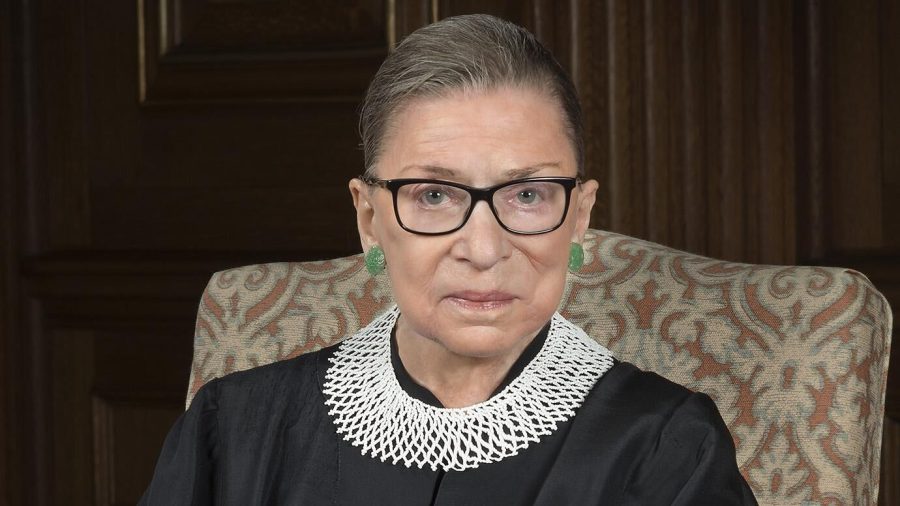Actually, Let’s Politicize the Death of RBG
Actually, Let’s Politicize the Death of RBG
October 7, 2020
On Sept. 18, 2020, this country lost a legend. Supreme Court Justice Ruth Bader Ginsburg left a defined imprint on this country, and her legacy as an advocate for women and equality will forever stand. However, it seems the country is divided on how to best honor this legacy.
One sentiment that has been repeated by pundits, lawmakers and members of the general public is, “let’s not politicize her death,” and “let’s just honor her life.”
Immediately, this creates a contradiction. Every aspect of Ruth Bader Ginsburg’s life was political, even before she pursued law as a career.
Ginsburg’s mother, Celia Bader, pushed her to go to college, which was an opportunity that was denied to Celia herself because the family could only afford to send one child to college, so they sent her brother. Additionally, her mother pushed her to live her Jewish faith proudly during the 1930s and 40s, a time when antisemitism sentiments were popular both in the United States and abroad. Those are political forces exerting influence on Ruth Bader Ginsburg’s childhood and upbringing. Celia battled cancer through Ginsburg’s high school years and passed away the day before her graduation.
Ginsburg graduated from Cornell, married Martin Ginsburg and moved with him to Oklahoma. There, she worked for the Social Security Administration and was demoted upon becoming pregnant with her first child. That’s political.
When Ruth enrolled at Harvard Law School with eight other women and 500 men, admitting women to Harvard Law was considered a political decision. This is further shown by the fact that the Dean of the Law School hosted all nine female students at his family home one night for dinner, where he asked them, “Why are you at Harvard Law School, taking the place of a man?” That is a political statement.
When Martin got a job in New York City, Ruth went with him and transferred to Columbia Law School. Upon graduating Columbia in 1959, although she had tied first in her class for academic accomplishments and had been on the Columbia Law Review, she could find no place willing to hire a woman. She applied to be a clerk for the Supreme Court, and despite having glowing recomendations, was rejected on the basis of sex. That’s political.
Ginsburg was finally hired as a clerk after one of her Columbia professors directly contacted a district court judge and threatened to blackball him if he did not at least give Ginsburg a chance.
All the while, Ginsburg was a working mother and wife. That was, and to this day, is a political decision that women are scrutinized for, regardless of their choice.
In 1963, Ginsburg began working at Rutgers Law School, where she was informed she would be making less money than her male colleagues due to her having a well paid husband. The wage gap is political.
By 1972, she was working for the American Civil Liberties Union. In case you weren’t aware, this is a political organization. Her appointments to the Circuit Court and later to the Supreme Court were political decisions, finalized by Senate votes and confirmation hearings. Again, her identity as a woman was politicised. Her legacy on the court is filled with dissents, striking majority opinions and deep friendship with the very different Justice Antonin Scalia. A self proclaimed “Flaming Femminist,” she never shied away from tough conversations, no matter their political nature. Her dying wish was a political request to not be replaced until after the election.
Because of RBG, women can apply for loans and start bank accounts without a male co-signer. Because of RBG, it is illegal to demote or fire a woman based on pregnancy or marital status.
The legacy of RGB is inherently political because her life was political. This makes her legacy no less poignant, nor does it lessen any of her achievements. We as Americans should celebrate the life of an exceptional political figure and incredible woman and acknowledge the politics of her life and her legacy.










